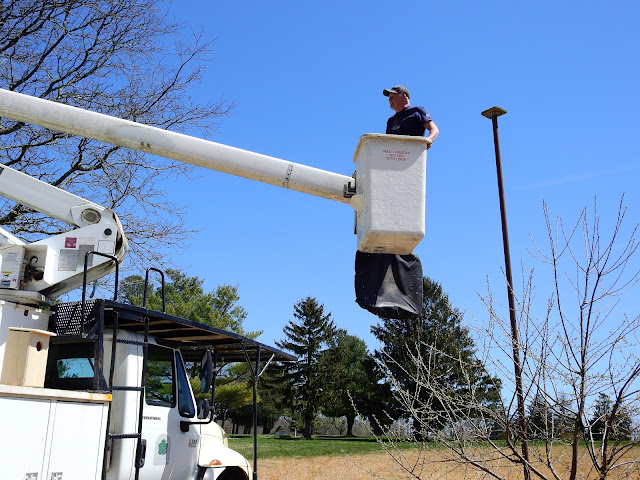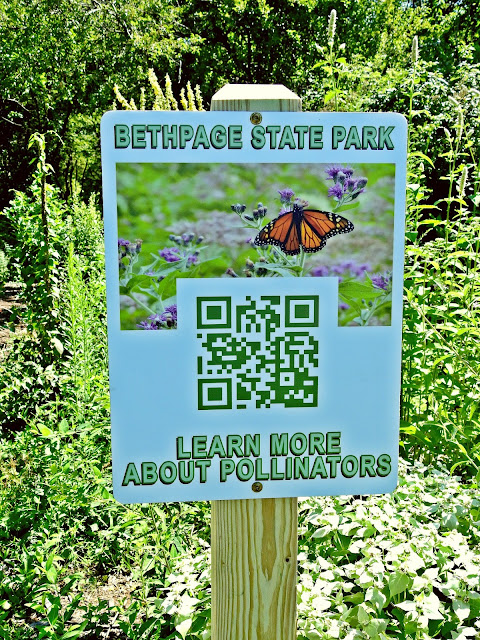New Wildlife Boxes at The Park for Earth Day
 |
Providing these box structures not only expands habitat, it encourages the next generation of species too! Over the years, we have had hundreds of successful fledglings from 4 dozen Bluebird boxes placed on our fairways. This brings us to the next benefit: wildlife boxes provide researchers, like myself, the ability to monitor and collect yearly data on species population and nest success. Additionally, artificial homes provide a solution to common habitat problems. For example, it alleviates the stress of two types of competition:
interspecific competition - fighting for resources between different species
intraspecific competition - fighting for resources between organisms of the same species
With all these beneficial reasons in mind, I scouted The Park for areas that needed new and improved wildlife boxes. This time, the homes were not specific to the typical bird dweller.
 |
| BEFORE - Green Course #5 fairway had a pole but no wildlife home. The box was probably destroyed years ago and never replaced until now! |
The first installation was for Bethpage's bats! Why bats? One might recall that bats are mammals that do not use boxes for nests...well, that is correct! However, bats require warm places for roosting; installing a box provides the security and shelter bats need for sleeping.
By utilizing a bucket truck, park staff installed a three chamber bat box adjacent to our Green Course #5 Pond. It is believed that boxes installed closest to a water feature have the best chance at being used. This is because bats require ponds for drinking and feeding on insects (considered prime habitat)!
AFTER - Notice the mesh on the inside of the box. This gives bats the ability to cling and hang in an upside down position.
Are there even bats present at Bethpage State Park?
Yes! Earlier this April, staff spotted an Eastern Red Bat in a patch of woods close to that very pond! Interestingly, the Eastern Red Bat is just one of the 8 bat species we have documented at our park.
 |
| An Eastern Red Bat clamps its foot around a branch and and tucks its wings to take a rest. In this position, this solitary creature almost becomes unnoticeable to predators or humans. |
American Kestrels are the smallest falcon found in North America and year-round residents.
Kestrels will nest in tree cavities and other crevices but because they are unable to excavate these spaces, these birds will use artificial boxes if constructed correctly!
I made sure that the box we installed had all the necessary features to encourage American Kestrel usage; this meant a perch inside and filling it with untreated wood chips (Kestrel nesting material)!
While Kestrels are common, sadly their numbers are declining. This is a result of deforestation for farming and pesticide use. Certainly, the installation of artificial homes could be a great resource to these falcons. It could also provide us with a way to monitor them closely at Bethpage State Park.
All in all, this project was a beautiful way to spend a beautiful day...
making our golf courses as wildlife friendly as could be!







Comments
Post a Comment